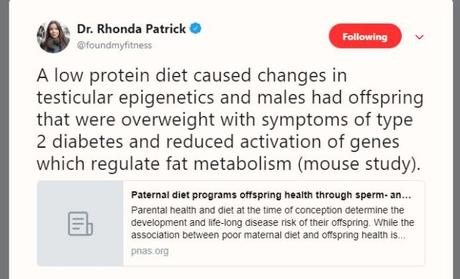Getting adequate protein is important for recovery, and adaptation to exercise. Adequate protein intake is also important for the general health and function of the body:

Protein powders are not required by everyone, but if you’re an MMA fighter, it’s something to consider using, especially if you are doing lots of resistance training and HIIT.
In theory, a quality protein powder will help you to recover from training sessions – but only if you are deficient in protein to begin with. Some studies also show that consuming protein stops you from craving snacks as much.
The infographic shown below, outlines how much food (in tins of tuna) you’d need to eat, in order to get the optimal amount of protein as an MMA fighter:
 Interesting and informative infographic from Kinetica Sports
Interesting and informative infographic from Kinetica SportsWhey Protein Powder
Whey protein powder is easy to digest and extremely high in protein. It is a by-product of cheese production, so it’s source is basically dairy, similar to casein in that respect.
Whey protein is very high in the BCAA called Leucine which is known to promote protein synthesis – PubMed study here.
A few studies have shown that whey protein, might be more effective at promoting muscle protein synthesis than casein (study here). Disclaimer – I’ve not read the full study; lots of them have blatant conflict of interests and poor designs etc.
There’s also some evidence that whey protein may help reduce inflammation – which is very handy when it comes to MMA recovery.
You can read more about whey protein in my complete guide here.
Whey protein tends to score highest on all the “protein metrics” such as “Biological Value” and “Net Protein Utilization”.
“Biological value (BV) is a measure of the proportion of absorbed protein from a food which becomes incorporated into the proteins of the organism’s body. It captures how readily the digested protein can be used in protein synthesis in the cells of the organism”
Hemp Protein Powder
Hemp protein contains all nine essential amino acids.
It’s a great source of protein if you’re on a plant-based diet.
Hemp protein and hemp seeds are basically “nature’s all in one” supplement, with plenty of healthy fats and vitamins and all that jazz.
If you are trying to lose weight for any reason, then hemp protein may not be the best source of protein, as you’ll generally need to consume more to get your optimal amount of protein.
According to some research – lysine is the limiting amino acid in hemp:
“Lysine was the first limiting amino acid in all products”
Quote Source
Amino AcidHemp Protein (%)Whey Protein (%)
Histidine2.71.7
Isoleucine4.56.4
Leucine6.810.6
Lysine3.89.6
Methionine+Cysteine4.64.4
Phenylalanine+Tyrosine85.6
Threonine3.96.7
Valine5.65.9
I can’t find any information on biological value etc of hemp protein powder. Perhaps this reflects the relatively low amount of research surrounding the product compared to whey protein. It could be argued that some whey protein studies however, do pose a “conflict of interest” issue, with some studies funded by dairy consortiums.
One study on rice protein and whey protein – found they had similar results. See the study here. Again, this should be taken with a pinch of salt, “one study means feck all”, as my friend once put it.
Protein Digestibility Corrected Amino Acid Scores – PDCAAS
– Casein 1.00
– Egg white 1.00
– Beef 0.92
– Soy protein isolate 1.00
– Chickpeas (canned) 0.71
– Pea flour 0.69
– Kidney beans (canned) 0.68
– Hemp nuts 0.61
– Pinto beans (canned) 0.57
– Rolled oats 0.57
– Lentils (canned) 0.52
– Hemp seed 0.51
– Hemp protein flour 0.48
– Whole wheat 0.40
– Almond 0.23
I was unable to find PDCAAS info about whey protein powder, but looking at hemp nuts and seeds, it should be at least 0.50.
Hemp Protein Vs Whey Protein
The table below looks at some of the pros and cons of hemp and whey protein powders:
CategoryHemp ProteinWhey Protein
TypePlant-BasedAnimal-Based
Made fromHemp PlantComponent of Dairy
Protein %40-50%Conc. – 70%Isolate – 90%+
ColourGreen/BrownCream
Price2lbs hemp protein – £20-£302lbs of whey concentrate £20-£30
Taste“earthy”, nuttyBland if unflavoured
ResearchLess researchLots of research
OtherContains omega 3 fatsHigh in BCAAs
Keep in mind, that whey protein isolate and whey protein concentrate are quite different. Whey isolate is easier to digest and doesn’t give you the horrible “protein farts” that come with concentrate – usually, depends on your lactose tolerance etc.
Casein Protein Powder
standard casein protein is “micellar” – which basically means it forms a clump. This makes it slow to digest when compared to whey. This is why lots of bodybuilders will choose to taken casein before bedtime, to get a slow release of protein over 8 hours whilst they are asleep.
One study compared whey protein and casein protein – the whey protein caused a spike in blood amino acid content, whereas casein resulted in a small initial spike, then are more sustained blood amino acid content – study here.
Casein Hydrolysate is not micellar, or particularly slow to digest, as it is pre-digested and therefore more quickly digested and assimilated.
Casein has all essential amino acids and has other “bioactive compounds” which are beneficial to health (study here).
As casein has a high leucine content – it’s indigestion results in an increase in protein synthesis, which in turn is important for muscle growth and recovery.
In one study casein hydrolysate was more effective at increasing some measures of strength compared to whey protein, and much more effective than a placebo. Study here
“Mean increase in strength for chest, shoulder and legs was 59 +/- 9% for casein and 29 +/- 9% for whey, a significant group difference. This significant difference in body composition and strength is likely due to improved nitrogen retention and overall anticatabolic effects caused by the peptide components of the casein hydrolysate.”
https://pubmed.ncbi.nlm.nih.gov/10838463/
However, most studies do suggest that whey protein is better for building muscle than casein.
This is thought to be because whey protein contains more branch chain amino acids – leucine, isoleucine and valine. Studies on whey protein vs casein here, here and here.
“We conclude that ingestion of isolated whey protein supports greater rates of MPS (Muscle Protein Synthesis) than micellar casein both at rest and after resistance exercise in healthy elderly men. This result is probably related to a greater hyperaminoacidaemia or leucinaemia with whey ingestion.”
https://pubmed.ncbi.nlm.nih.gov/22289570/
Beef2.980730.92
Black Beans000.75
Casein2.577761.00
Egg3.9100941.00
Milk2.591821.00
Peanuts1.80.52
Soy protein2.274611.00
Wheat gluten0.864670.25
Whey protein3.2104921.00
Conclusion
Your best bet, is to opt for whey protein as an MMA fighter. Whey protein has the most research behind it. Although some argue a lot of the research is funded by dairy consortiums. Even so, there is such a vast amount of research it does seem highly likely that whey protein is a very effective and safe form of protein for MMA fighters looking to recover and adapt to training sessions.

